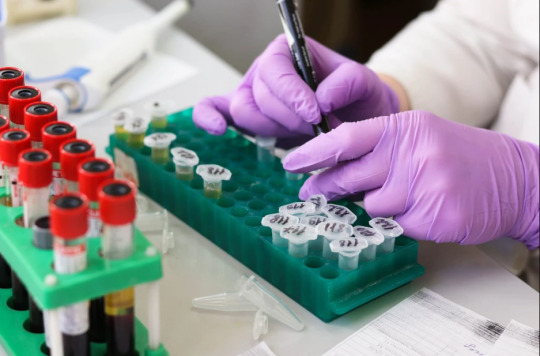Text
The Role of Genetic Testing in Celiac Disease
The realm of medical science, while inherently complex, is continually progressing, introducing innovative approaches to understand, diagnose, and treat various diseases. One such innovative tool making significant strides in the field of gastroenterology is the Celiac Genetic Test. This test focuses on identifying specific genetic markers linked to celiac disease, a severe autoimmune disorder that occurs in genetically predisposed individuals, leading to damage in the small intestine upon ingestion of gluten.
Two critical components of the Celiac Genetic Test are the genes HLA-DQ2 and HLA-DQ8. These genes ordinarily contribute to the functioning of our immune system, but they can also play a pivotal role in the development of celiac disease. However, the mere presence of these genes does not decree that an individual will develop the condition. Instead, it significantly heightens the risk, much like a dormant volcano that could potentially erupt under specific conditions.
Diagnosing celiac disease is often a complex and challenging process due to its multifaceted presentation. Symptoms can range from minor gastrointestinal discomfort to severe malnutrition and weight loss, making it a clinical chameleon. Furthermore, traditional diagnostic methods like antibody tests or intestinal biopsies can sometimes present ambiguous results, adding another layer of complexity to the process. This ambiguity can result in delayed diagnosis, which in turn, leads to prolonged patient suffering and potential complications.
This is where the Celiac Genetic Test comes into play. By effectively identifying the presence of HLA-DQ2 or HLA-DQ8 genes, this test can add a vital piece to the diagnostic puzzle. It provides an opportunity to either corroborate or refute a suspected diagnosis when other diagnostic tests yield inconclusive results. Thus, it serves as a valuable tool in a clinician's diagnostic arsenal, guiding them towards a more accurate diagnosis and, consequently, a more targeted treatment approach.
Nonetheless, it is essential to understand that the Celiac Genetic Test, while valuable, is not a standalone solution. It is one cog in the complex machinery of diagnosis and treatment. It provides a piece of the puzzle but does not complete the picture on its own. Clinical judgment, patient history, symptomatology, and results from other diagnostic tests all play crucial roles in forming a comprehensive understanding of a patient's condition.
In the hands of healthcare professionals, the Celiac Genetic Test can be an invaluable tool, guiding treatment plans and providing patients with a definitive path forward. For patients, understanding their genetic predisposition can empower them to make informed dietary choices and lifestyle changes, mitigating the risk of triggering the disease.
In conclusion, the Celiac Genetic Test is a significant step forward in our fight against celiac disease. It exemplifies how genetic testing is revolutionizing our understanding and management of various health conditions. However, it also underscores the importance of a multifaceted approach to healthcare, reminding us that while genetic testing can provide critical insights, it is only one part of a much larger, more complex picture. As we continue to navigate the labyrinth of medical science, it is these advancements that inch us closer to providing better, more personalized healthcare to all patients.

0 notes
Text
Celiac Genetic Test

The Celiac Genetic Test is a specialized genetic test designed to identify the presence of certain genes, specifically DQ2 and DQ8, which are associated with Celiac disease. These genes are required for gluten sensitivity to manifest as Celiac disease and tend to run in families, with up to half of the family members potentially carrying them if one individual is affected.
The test employs a simple and non-invasive sample collection method using a buccal (cheek) swab, which can be conveniently conducted at home. This makes the test not only accurate but also user-friendly and minimally intrusive.
The process involves a series of steps: the customer orders the kit online, receives it at home, collects the sample, and sends it back to the world-class CLIA-certified labs with the provided free return shipping service (applicable only in the US). Upon the sample's analysis, a secure, confidential, and easy-to-understand report is generated and delivered to the customer within a few days.
Related Searches: Food Sensitivity Test-208 Foods|Food Sensitivity Test - Basic (96 Foods)|Pollen, Mold & Inhalants Test|Food + Inhalants Test|Celiac Disease- Antibody Test|Inflammation and Vitamin D -hs-CRP Test
1 note
·
View note